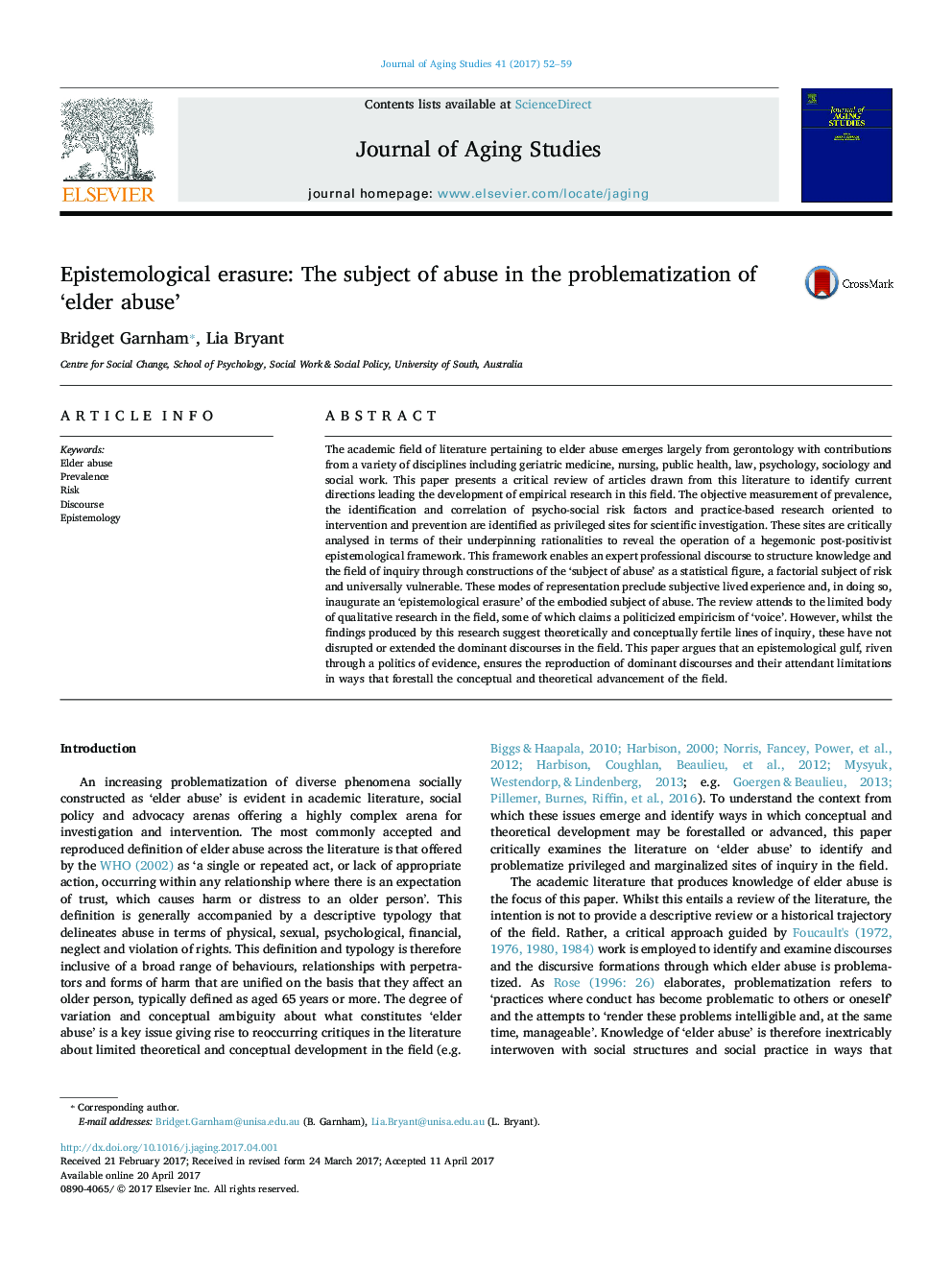| کد مقاله | کد نشریه | سال انتشار | مقاله انگلیسی | نسخه تمام متن |
|---|---|---|---|---|
| 5121643 | 1486760 | 2017 | 8 صفحه PDF | دانلود رایگان |
- Critically reviews the academic literature on elder abuse
- Identifies privileged sites for empirical inquiry on elder abuse
- Reveals the hegemonic operation of a post-positivist framework
- Explores limitations and constraints on this field of inquiry
- Suggests productive lines of critical inquiry to transform the field
The academic field of literature pertaining to elder abuse emerges largely from gerontology with contributions from a variety of disciplines including geriatric medicine, nursing, public health, law, psychology, sociology and social work. This paper presents a critical review of articles drawn from this literature to identify current directions leading the development of empirical research in this field. The objective measurement of prevalence, the identification and correlation of psycho-social risk factors and practice-based research oriented to intervention and prevention are identified as privileged sites for scientific investigation. These sites are critically analysed in terms of their underpinning rationalities to reveal the operation of a hegemonic post-positivist epistemological framework. This framework enables an expert professional discourse to structure knowledge and the field of inquiry through constructions of the 'subject of abuse' as a statistical figure, a factorial subject of risk and universally vulnerable. These modes of representation preclude subjective lived experience and, in doing so, inaugurate an 'epistemological erasure' of the embodied subject of abuse. The review attends to the limited body of qualitative research in the field, some of which claims a politicized empiricism of 'voice'. However, whilst the findings produced by this research suggest theoretically and conceptually fertile lines of inquiry, these have not disrupted or extended the dominant discourses in the field. This paper argues that an epistemological gulf, riven through a politics of evidence, ensures the reproduction of dominant discourses and their attendant limitations in ways that forestall the conceptual and theoretical advancement of the field.
Journal: Journal of Aging Studies - Volume 41, April 2017, Pages 52-59
